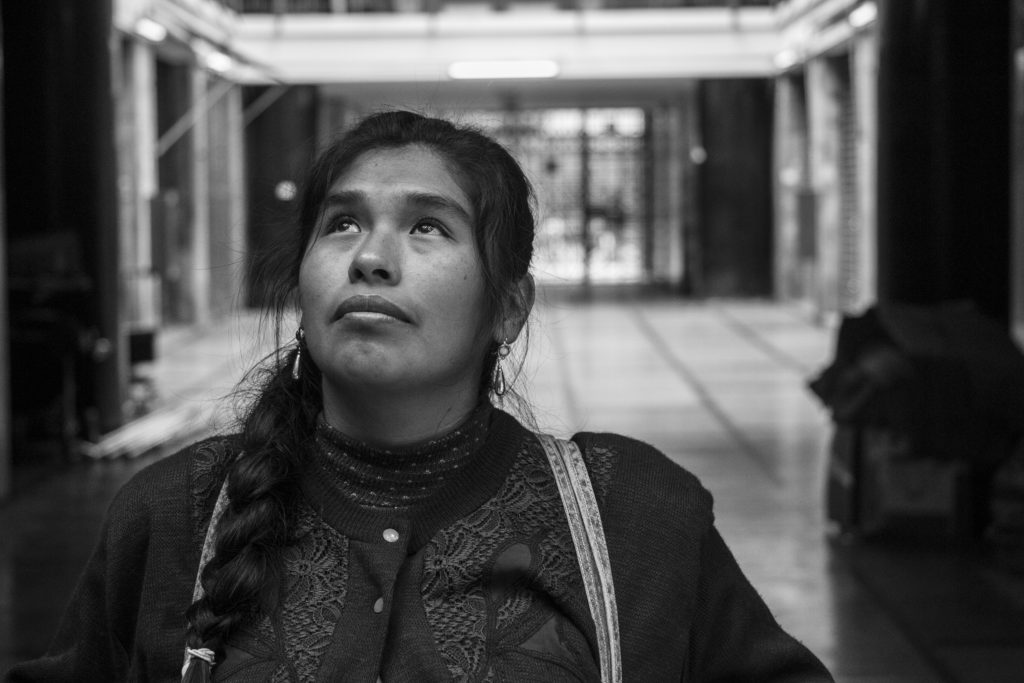Melina León is a Peruvian director based in Lima and New York. Her short film “El paraíso de Lili,” translated as “Lili’s Paradise,” premiered at the New York Film Festival and won 11 awards during its 20-plus festival run, including Best Latin American Film at the Sao Paulo International Short Film Festival.
“Song Without a Name” will premiere at the 2019 Cannes Film Festival on May 16.
W&H: Describe the film for us in your own words.
ML: “Canción sin nombre,” translated as “Song Without a Name,” is a black and white film which takes us to the violent world of Peruvian society back in the 1980s. It’s a film about the power of resistance of Georgina, our young protagonist whose newborn baby gets stolen from a clinic.
W&H: What drew you to this story?
ML: Perhaps what drew me to this story was the way I learned about it. My dad, who was a journalist, one day received a phone call from a French woman who wanted to thank him for the articles he wrote decades before about child trafficking. She was one of the babies that was stolen and was delivered to French parents.
I felt the story was miraculous and, at the same time, really telling about where we are as humans — about the meaning of human condition.
W&H: What do you want people to think about when they are leaving the theater?
ML: Exactly what I felt when I heard the story for the first time: a mix of fear and hope.
W&H: What was the biggest challenge in making the film?
ML: I think it was fundraising. It is not easy to raise funds for a first feature with a woman director and unknown actors in black and white about dark times in a peripheral country. It takes determination to convince people and institutions that your idea is good and that you have what it takes to make it work.
W&H: How did you get your film funded? Share some insights into how you got the film made.
ML: It’s a mix of all kinds of resources. First, we won the contest of the Ministry of Culture of Peru to produce a feature. [We also received support from] the co-production program of Ibermedia, the Jerome Foundation, our Kickstarter campaign, private investments, in kind services, and finally our stellar partner, Luxbox, which also gave us the support to complete post-production.
W&H: What inspired you to become a filmmaker?
ML: From a very early age I fell in love with all kinds of artistic manifestations. Later on, I realized that film encompasses all of them. I think film expands our minds and emotions and our sense of beauty.
W&H: What’s the best and worst advice you’ve received?
ML: The best advice was to take my time to do things, to really try things out.
The worst was to apply for post-production funds with a three-hour cut!
W&H: What advice do you have for other female directors?
ML: My advice would be to keep going and recover quickly from negative responses.
The great Peruvian poet, screenwriter, and art director José Watanabe also used to tell me, “It takes the same amount of effort to make bad films than to make good ones, so better jump to good ones from the start.”
He also asked me not to film sunsets — I didn’t listen to him in that regard.
W&H: Name your favorite woman-directed film and why.
ML: “Cleo from 5 to 7” by Agnès Varda. It’s daring, beautiful, smart, poetic, and visually unforgettable.
W&H: It’s been over a year since the reckoning in Hollywood and the global film industry began. What differences have you noticed since the #MeToo and #TimesUp movements launched?
ML: It’s beautiful that we are at the center of the discussion. Women are organizing all over the world. I see new women’s groups online all the time — women supporting each other’s work, hearing each other’s stories, providing career and artistic advice. A month ago, a group called Women Filmmakers began in Lima, Peru. It seems to me that we are finally becoming aware of our oppressed situation, in spite of all our liberties, and acknowledging the need to act collectively and envision a different world.







